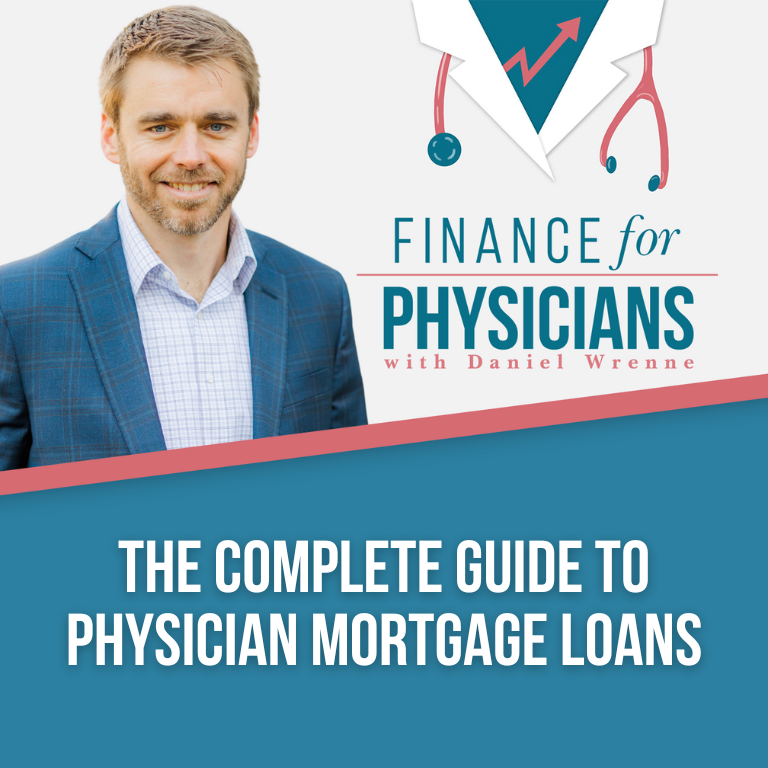A physician loan mortgage calculator helps doctors determine their monthly mortgage payments based on their loan amount, interest rate, and repayment term. It is a useful tool that provides accurate and precise calculations, making it easier for physicians to plan their finances and budget effectively.
With this calculator, doctors can easily estimate how much they need to set aside each month for their mortgage payments, allowing them to make informed decisions when it comes to purchasing a home. Whether you are a new physician or an experienced one, using a physician loan mortgage calculator can be a valuable resource in your home buying journey.
Physician Loan Mortgage Basics
Physician loans are specialized mortgages designed for medical professionals.
What Is A Physician Loan?
Physician loans are tailored for doctors, featuring unique terms and benefits.
Key Features And Benefits
- Low to no down payment requirements.
- Flexible debt-to-income ratio calculations.
- Avoidance of private mortgage insurance (PMI).
- Higher loan limits compared to traditional mortgages.
- Quick approval process to accommodate busy schedules.

Credit: wrennefinancial.com
Why Physicians Choose Specialty Loans
Physicians opt for specialty loans to utilize the Physician Loan Mortgage Calculator for tailored financial planning. This tool helps them estimate mortgage costs accurately, ensuring informed decisions and personalized loan options. By choosing specialty loans, physicians gain flexibility and financial stability to meet their unique needs.
Tailored For Medical Professionals
Physicians, with their unique financial circumstances and high earning potential, often face challenges when it comes to securing a mortgage. That’s where specialty loans specifically designed for medical professionals come in. These loans are tailored to meet the needs of doctors, dentists, and other healthcare providers, providing them with more flexible terms and benefits that conventional loans simply can’t match.
- Higher loan limits: Specialty loans often offer higher loan limits than conventional loans, allowing physicians to finance their dream homes without the need for a hefty down payment.
- Flexible debt-to-income ratios: Medical professionals may have significant student loan debt, which can affect their debt-to-income ratio. Specialty loans take this into consideration and offer more lenient guidelines, making it easier for physicians to qualify.
- Lower down payment requirements: Specialty loans typically require a lower down payment compared to conventional loans. This allows physicians to preserve their savings for other important expenses or investments.
- No private mortgage insurance (PMI): Conventional loans often require PMI if the down payment is less than 20%. With specialty loans, physicians can avoid this additional cost.
Comparing Conventional Vs. Physician Loans
When comparing conventional loans to physician loans, it becomes clear why medical professionals opt for specialty loans. Conventional loans follow stricter guidelines that may not align with the unique financial situations of physicians. Here are the key differences:
| Factor | Conventional Loans | Physician Loans |
|---|---|---|
| Down Payment | Typically 20% or more | Lower down payment requirements, often as low as 0-5% |
| Debt-to-Income Ratio | Strictly enforced, may be limited by student loan debt | More lenient guidelines, taking into account medical professionals’ unique financial circumstances |
| Loan Limits | Standard limits apply | Higher loan limits, accommodating the higher earning potential of physicians |
| Private Mortgage Insurance (PMI) | Required if down payment is less than 20% | No PMI required |
Physicians are drawn to specialty loans because they offer the flexibility and benefits that conventional loans often lack. These loans recognize the unique financial circumstances and earning potential of medical professionals, providing them with the means to achieve their homeownership goals without unnecessary obstacles.
How Mortgage Calculators Work
Mortgage calculators are useful tools that help individuals estimate their monthly mortgage payments based on various factors such as loan amount, interest rate, and term length.
The Math Behind The Calculations
Mortgage calculators utilize a standard formula to determine monthly payments, factoring in principal, interest, taxes, and insurance. These calculations are based on the loan amount, interest rate, and term length.
Variables In Mortgage Calculations
- Loan Amount: The total amount borrowed from the lender.
- Interest Rate: The annual interest rate charged on the loan.
- Term Length: The number of years over which the loan will be repaid.

Credit: www.studentdebtdestroyer.com
Physician Loan Mortgage Calculator Explained
Physician Loan Mortgage Calculator is a valuable tool designed specifically for physicians to help them make informed decisions about their mortgage options. This calculator takes into account the unique financial circumstances of medical professionals, allowing them to input specific parameters and interpret the results to determine the most suitable mortgage plan.
Input Parameters Specific To Physicians
When using the Physician Loan Mortgage Calculator, physicians can input specific parameters that are tailored to their financial situation. These include:
- Loan amount
- Interest rate
- Loan term
- Down payment amount
- Debt-to-income ratio
Interpreting The Results
Upon entering the relevant input parameters, physicians can interpret the results provided by the calculator. The results include:
- Monthly mortgage payment
- Total interest paid over the loan term
- Loan amortization schedule
Calculating Your Monthly Payments
When it comes to purchasing a home, understanding your financial obligations is crucial. One key aspect to consider is your monthly mortgage payments. By using a physician loan mortgage calculator, you can accurately estimate your monthly payments, helping you plan and budget effectively.
Estimating Principal And Interest
Calculating your monthly mortgage payments involves several components. First, you’ll need to estimate the principal amount you’re borrowing and the interest rate attached to the loan. This information forms the basis of your monthly payment calculation.
Factoring In Taxes And Insurance
Additionally, you’ll need to factor in property taxes and homeowners insurance into your monthly payments. These costs can fluctuate based on location and property value, so it’s important to include them in your calculations to ensure an accurate estimate of your overall monthly mortgage payment.
Understanding Down Payments And Pmi
Learn about down payments and private mortgage insurance (PMI) when using a physician loan mortgage calculator. Understand how these factors can impact your mortgage payments and overall financial situation. Make informed decisions to ensure a smooth home buying process.
Understanding Down Payments and PMI is essential when considering a physician loan mortgage. Down payments are a critical factor in determining the loan amount, interest rate, and monthly payments. Additionally, Private Mortgage Insurance (PMI) is a requirement for most loans with a down payment of less than 20%. However, physician loan mortgages offer unique benefits that make them an attractive option for medical professionals. In this section, we will delve into the Minimum Down Payment Requirements and how Physician Loans Waive PMI.
Minimum Down Payment Requirements
Most traditional mortgages require a minimum down payment of 20%. This can be a significant obstacle for physicians who are burdened with student loan debt. However, physician loan mortgages offer more flexible options. These loans typically require a minimum down payment of 0-5%. This means that physicians can purchase a home with less money down and avoid the extra costs associated with a larger down payment.
How Physician Loans Waive Pmi
Private Mortgage Insurance (PMI) is a requirement for most loans with a down payment of less than 20%. PMI is an insurance policy that protects the lender in case the borrower defaults on the loan. This can add hundreds of dollars to the monthly mortgage payment. However, physician loan mortgages waive PMI requirements, even with a down payment as low as 0%. This is a significant advantage for physicians who want to save money on their monthly mortgage payments. In conclusion, understanding Down Payments and PMI is crucial when considering a physician loan mortgage. Physician loan mortgages offer flexible down payment options and waive PMI requirements, making them an excellent choice for medical professionals. By knowing the Minimum Down Payment Requirements and how Physician Loans Waive PMI, physicians can make an informed decision about their mortgage options.
The Role Of Credit Score And Debt-to-income Ratio
When applying for a physician loan mortgage, your credit score and debt-to-income ratio play crucial roles in determining your loan terms and eligibility. Lenders use these factors to assess your financial responsibility and ability to manage debt, impacting the interest rates and loan options available to you.
Credit Score Impact On Loan Terms
A credit score is a numerical representation of your creditworthiness, based on your credit history and financial behavior. Lenders use this score to evaluate the risk of lending to you. A higher credit score typically leads to more favorable loan terms, including lower interest rates and higher borrowing limits. Conversely, a lower credit score may result in higher interest rates and stricter loan requirements.
Debt-to-income Ratio Explained
Your debt-to-income (DTI) ratio measures the percentage of your monthly income that goes toward paying debts. Lenders use this ratio to assess your ability to manage additional debt. A lower DTI ratio indicates a healthier financial situation, making you a more favorable candidate for a physician loan mortgage. Lenders typically prefer a DTI ratio of 43% or lower, as it demonstrates a better balance between income and debt obligations.
Advanced Features Of Mortgage Calculators
When it comes to purchasing a home, understanding the financial aspects is crucial. Mortgage calculators are valuable tools that can help you estimate your monthly payments, compare different loan options, and determine the total cost of your mortgage.
Amortization Schedules
Amortization schedules are essential for visualizing how your mortgage payments are allocated between interest and principal over time. By using a mortgage calculator that provides an amortization schedule, you can gain insight into how your payments will impact your loan balance.
Adjustable-rate Vs. Fixed-rate Mortgages
Deciding between an adjustable-rate mortgage (ARM) and a fixed-rate mortgage is a significant financial choice. With a mortgage calculator, you can input different interest rates and loan terms to compare the total costs of these two types of mortgages, helping you make an informed decision.
Tips For Using Physician Loan Mortgage Calculators
Discover valuable insights on optimizing your finances with Physician Loan Mortgage Calculators. Calculate loan options efficiently for better financial planning. Unlock the power of accurate calculations for smarter mortgage decisions.
Physician loan mortgage calculators are an essential tool for any medical professional looking to purchase a home. These calculators help you estimate your monthly mortgage payments, down payment, and total loan amount. They are easy to use and can save you time and money during your home buying process. However, to get the most accurate results, it’s important to use them correctly. Here are some tips for using physician loan mortgage calculators.
Ensuring Accurate Inputs
To get the most accurate results from your physician loan mortgage calculator, it’s important to input the correct information. The calculator will ask for your loan amount, interest rate, loan term, and down payment. Make sure you have these figures ready and double-check them before entering them into the calculator. Even a small mistake can significantly affect the accuracy of your results.
When To Consult A Financial Advisor
While physician loan mortgage calculators are a great tool, they are not a substitute for professional financial advice. If you have complex financial circumstances or are unsure about your financial situation, it’s best to consult with a financial advisor. They can help you understand your options and guide you through the home buying process. A financial advisor can also help you determine the right loan amount, interest rate, and loan term for your unique situation. Physician loan mortgage calculators are an essential tool for any medical professional looking to purchase a home. By ensuring accurate inputs and knowing when to consult a financial advisor, you can get the most accurate results and make informed decisions about your home buying process.
Case Studies: Real-life Examples
Recent Graduates Entering Residency
Many recent medical school graduates find themselves in need of a mortgage as they transition into their residencies. With substantial student loan debt and limited work history, traditional mortgages can be challenging to obtain. A physician loan mortgage calculator can help these young professionals understand their financial options and plan for homeownership.
Established Doctors Buying Second Homes
Established physicians who are looking to purchase a second home, whether for vacation or investment purposes, have unique financial circumstances. Their high earning potential and existing mortgage commitments require a tailored approach to mortgage planning. By utilizing a physician loan mortgage calculator, these doctors can evaluate different scenarios and make informed decisions about their real estate investments.
Next Steps After Calculating Your Mortgage
Once you’ve used the physician loan mortgage calculator to estimate your monthly payments, it’s time to take the next steps towards securing your home loan. Understanding the process and preparing accordingly can make the application process much smoother. Here’s what you need to do:
Preparing For The Application Process
Gather all the necessary documents, such as tax returns, pay stubs, and bank statements. Review your credit report and address any discrepancies. Organize your financial information to streamline the application process.
Finding The Right Lender
Research and compare different lenders to find one that offers favorable terms for physician home loans. Consider factors such as interest rates, loan options, and customer service. Seek recommendations from colleagues or professional networks.

Credit: www.bankrate.com
Frequently Asked Questions
Do Doctors Get Good Mortgage Rates?
Yes, doctors are considered low-risk borrowers and can often qualify for good mortgage rates. Lenders typically look favorably on doctors due to their high earning potential and job stability. Additionally, some lenders offer special mortgage programs specifically for medical professionals with benefits such as lower down payments and discounted interest rates.
What Are The Physician Mortgage Rates For 2024?
Physician mortgage rates for 2024 vary depending on lenders and individual financial profiles. It’s advisable to compare offers for the best rates.
What Credit Score Do You Need For A Physician Loan?
To qualify for a physician loan, you generally need a credit score of 700 or higher. This specialized loan is designed for medical professionals, offering flexible terms and favorable interest rates. Having a good credit score can increase your chances of approval and potentially lower your loan costs.
What Debt To Income Ratio Do You Need For A Physician Mortgage Loan?
The debt to income ratio required for a physician mortgage loan varies by lender, but generally, a ratio of 43% or lower is preferred. This means that your monthly debt payments should not exceed 43% of your gross monthly income.
It’s important to check with different lenders to find out their specific requirements.
Conclusion
Utilizing a physician loan mortgage calculator simplifies the home buying process for medical professionals. By accurately estimating potential mortgage payments, doctors can make informed decisions. Understanding their financial obligations upfront allows physicians to plan effectively for the future. Empower yourself with the right tools to navigate the real estate market confidently.
